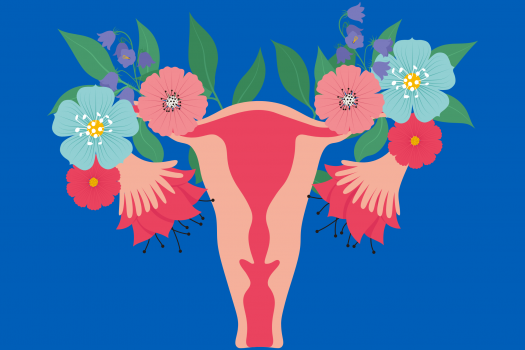World Menopause Day

To mark World Menopause Day, we are sharing candid insights from people who have lived, or are living, through perimenopause and menopause.
As part of our ongoing UK-European SHIFT Project, together with our partners we have researched the sexual health needs and experiences of almost 1,000 people aged over 45 across Southern England, France, Belgium, and the Netherlands. METRO focused specifically on reaching individuals who might be more vulnerable to poor sexual health, including people on low incomes or with a range of identities, including LGBTQ+ people, migrants, sex workers, and people who have experienced homelessness or substance misuse issues.
Our team then used the information gained from this research to design and deliver a series of community outreach events, delivered throughout 2022 in South East England, promoting better sexual health knowledge and outcomes for people aged over 45. We spoke candidly to almost 200 individuals and couples about their sexual health and wellbeing needs, confirming that they were under-served by mainstream services and that menopause-related issues dominated many of their concerns.
Menopause was the most common issue raised, both by those suffering directly from menopausal symptoms as well as those suffering indirectly, such as spouses and partners. METRO listened to many individuals and their partners describe the impact of menopause on their daily lives, their relationships, their mental health, their careers, and their sexual wellbeing. Symptoms like vaginal dryness, pelvic floor weakness, pain during sex, delayed orgasm or not being able to orgasm at all, and low or no libido were noted as key barriers to healthy and fulfilling sex lives. Symptoms like night-sweats, hot flashes, fatigue and exhaustion, hormonal fluctuations, mood swings, and bodily changes seemed to be the key culprits behind many mental health concerns and relationship challenges.
Many people highlighted the lack of support in their workplaces and from their GPs, many of whom were not perceived to care or be concerned by the impact of menopause on health and seemed to brush off concerns. In the instances where hormone replacement therapy (HRT) was offered, many found the cost of treatment prohibitive and were thus unable to explore this line of support. In the UK, the affordability of HRT is a barrier to treatment for many women, particularly those on a lower income and especially when multiple scripts and/or short supply amounts are prescribed.
As the UK’s All-Party Group on Menopause has raised, the postcode lottery for providing HRT is inequitable and must change to address the negative physical and mental health and wellbeing outcomes many people who do not receive an appropriate or timely HRT experience. It should be noted that there are many forms of HRT which individuals may need to trial before finding out what works for them; it could be a long process for some individuals to find a treatment regime that effectively improves their health and wellbeing. Time is a critical issue, as is de-stigmatising the ask for HRT in its many potential forms.
Many people were visibly reluctant to talk to us about their experiences. Menopause is still highly stigmatised in the UK, and home-based options that can help manage symptoms such as using sex toys and pelvic floor toners, adding lubricant to masturbation or sexual activities, exploring other erogenous zones, and discussing changes with intimate partners are still shied away from as taboo.
From this research and outreach METRO and our partners have deepened the understanding and appreciation of both duration of time and the impact of adverse peri-menopause/menopause symptoms can have for people going through them and also for the people who are close to them, as a film they produced as part of this research dramatises.
Amanda Dawes, a health & inequalities consultant leading the SHIFT project for METRO said:
“I have worked in the field of sexual health for nearly 20 years, and I was overwhelmed by the number of women whose voices and stories have remained largely absent from sexual health services. The menopause is clearly having a hugely detrimental impact on women, their partners, and their whole families across the UK. We are not doing nearly enough to respond to this crisis. We must embed good policies and practices to support women’s health throughout the whole life course, and we need to examine critically and urgently how women and people with a uterus are prepared for and supported through this often-challenging, and significantly long, phase of life.”
We are pleased to see that following the aforementioned All-Party Group report, MPs are calling for menopause health checks at 45, along with more workplace support and policy development, appropriate training for health care practitioners, and access to free HRT in England. It is vital that we remain mindful that these are real people living through complex scenarios and issues, and that through breaking the stigma, and providing greater support, life-changing differences can be achieved for them and for future generations.
This World Menopause Day, together with our project partners we call upon the Government, the NHS, and all workplaces to do more to support people living with and affected by the menopause and perimenopause. And ask you to write to your MP and your local authority asking for better recognition of and support for people going through the menopause.
To find out more about the SHIFT Project, including accessing free sexual and reproductive health resources and signposting, visit www.shift-sexual-health.eu.